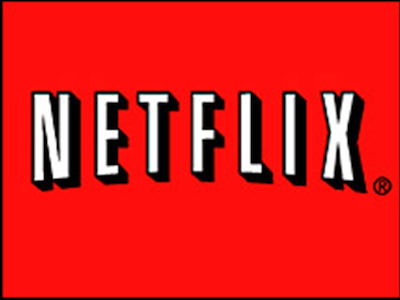Netflix Streaming Improves for AT&T, Verizon
Anne Marie Squeo, who is part of the Netflix communications team, updated the company's blog on Monday with a brief summary regarding the ISP Speed Index for August. She said that interconnection agreements with AT&T, Time Warner Cable and Verizon have resulted in better connections for Netflix customers. That means less buffering, faster start times and a better picture.
"The Netflix ISP Speed Index is based on data from the more than 50 million Netflix members worldwide who view over 1 billion hours of TV shows and movies streaming from Netflix each month. The listed speeds reflect the average performance during prime time of all Netflix streams on each ISP's network and are an indicator of the performance typically experienced across all users on an ISP network."
In July, AT&T's U-Verse average speed was 1.44 Mbps, followed by its DSL service with 1.11 Mbps. For August, the U-Verse speed took a dramatic turn for the good with an average of 2.61 Mbps. The DSL service also saw a slight increase with an average speed of 1.81 Mbps; still not ideal, but better.
On the Verizon front, its FiOS service had an average speed of 1.61 Gbps, and its DSL service had an average speed of 0.97 Mbps in July. For August, the speeds jumped up to 2.41 Mbps and 1.31 Mbps, respectively. Time Warner Cable also saw a slight increase, moving up from 2.16 Mbps in July to 2.59 Mbps in August.
Overall, Cablevision's Optimum service provided the fastest speeds in August at 3.11 Mbps. This was followed by Cox (3.03 Mbps), Suddenlink (2.92 Mbps), Comcast (2.90 Mbps), Charter (2.88 Mbps), and Mediacom (2.67 Mbps). AT&T's U-Verse saw the biggest gains in August (+7), whereas CenturyLink saw the biggest loss (-3).
Netflix agreed to pay AT&T for a smooth connection back in July. According to Reuters, the two established new network connections so that Netflix can send video directly to AT&T servers. Netflix made a similar deal with Comcast Corp in February 2014, Verizon Communications in April 2014 and Time Warner Cable in August.
Netflix said back in July that ISPs "should not impede, favor, or charge Internet services that consumers choose to use." The comment, among others, were sent to the Federal Communications Commission during the Net Neutrality proceeding.
Get Tom's Hardware's best news and in-depth reviews, straight to your inbox.
"The Commission should adopt clear enforceable anti-discrimination and no-blocking rules for the last mile," Netflix told the FCC. "The Commission also must require ISPs to provide sufficient interconnection to cover the capacity demanded and paid for by their customers, without charging access tolls to online content providers."
Follow Kevin Parrish @exfileme. Follow us @tomshardware, on Facebook and on Google+.

Kevin Parrish has over a decade of experience as a writer, editor, and product tester. His work focused on computer hardware, networking equipment, smartphones, tablets, gaming consoles, and other internet-connected devices. His work has appeared in Tom's Hardware, Tom's Guide, Maximum PC, Digital Trends, Android Authority, How-To Geek, Lifewire, and others.
-
Vatharian And this is fresh news just after AT&T says that 4 mbps should remain definition of broadband. By this, they're offering dial-up, marketed as broadband in the price of fiber with golden-plated modem. Way to go! Go, go go, 'murica!Reply -
house70 Perfect example of mafia-style of conducting business:Reply
-"you pay more, or we'll cut you up!"
-"I don't wanna pay more!"
-"you pay more, or we'll cut you up!"
-"...mkay..."
-
zhunt99 "On the Verizon front, its FiOS service had an average speed of 1.61 Gbps"Reply
If only that were true :-( -
Solandri Netflix should just change their bill. Instead of their fixed monthly rate, it should list a monthly rate + ISP-mandated surcharge. If the ISPs complain, just point out that it's completely unfair to amortize the access fee they're demanding over Netflix customers who don't use them as an ISP.Reply -
alextheblue I've never had issues with Netflix and FiOS, not since I started using it a couple of years ago. They just gave us a free upgrade so my 50/25 (mbps) service is now 50/50. I tested it and got 56/57 down/up. Competition is great.Reply
And this is fresh news just after AT&T says that 4 mbps should remain definition of broadband. By this, they're offering dial-up, marketed as broadband in the price of fiber with golden-plated modem. Way to go! Go, go go, 'murica!
Find me dial-up capable of 4mbps. :P
Anyway, their DSL is cheaper than fiber... it's not a bargain for what you get, but it certainly is cheaper, and for some people it's your only option for decent somewhat low-latency internet. Better for gaming than satellite or dial-up, and no data caps like satellite for streaming. If you can get decent cable or FiOS, well those are better options.
